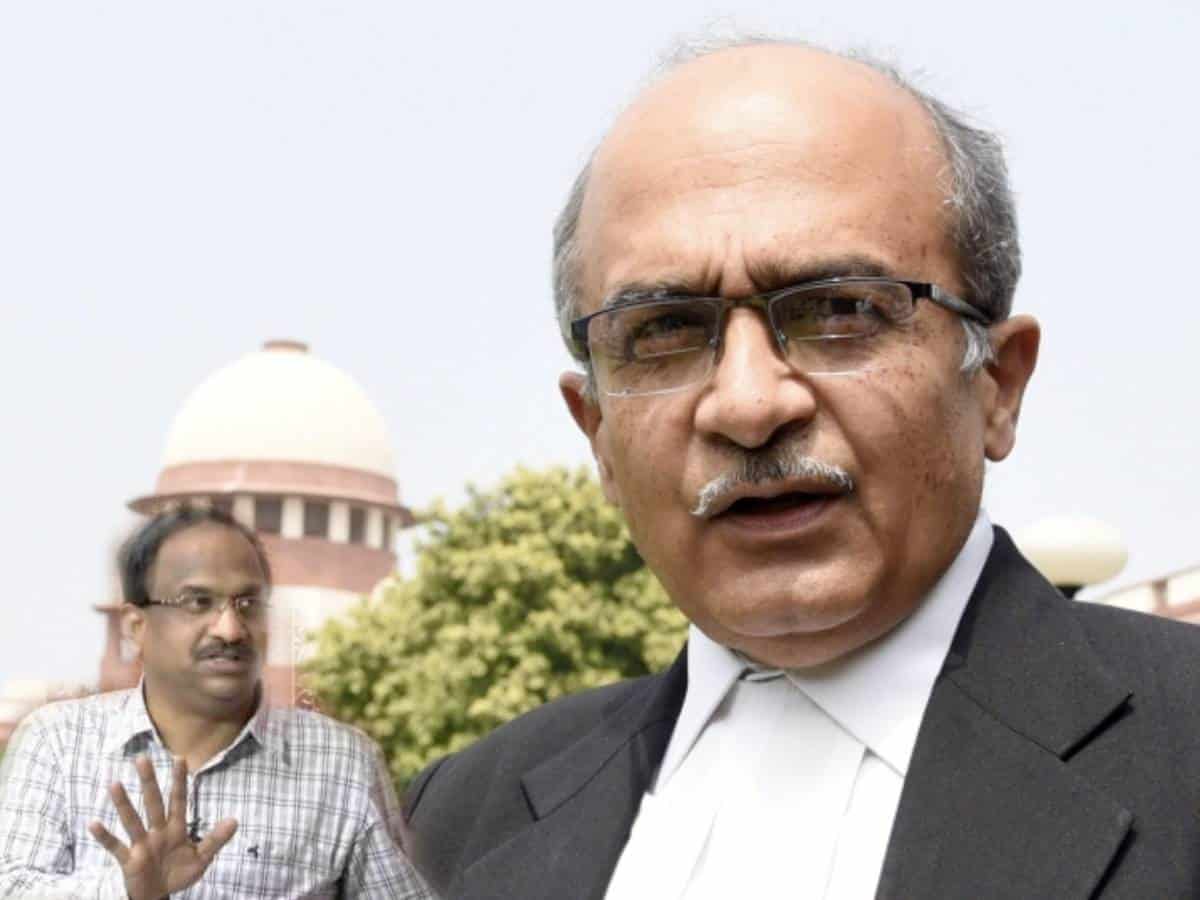The Supreme Court holding senior civil rights lawyer, Prashanth Bhushan guilty of criminal contempt of court raises several fundamental questions over functioning of Indian judiciary.
The apex court found him guilty of criminal contempt for his two tweets, one referring to a photograph showing the Chief Justice on a luxurious motor bike during Pandemic allegedly unconcerned of social distancing norms and the other was his expression of an opinion that recent judgments of Supreme Court have weakened democracy.
The Constitution of India empowers both supreme Court and High Courts to take up contempt cases under article 129 and 215 respectively. The apex court in several judgments explained the grounds that attract contempt of court. The significant among them is any attempt to weaken or undermine the authority or adversely affect the public confidence in these courts. Prashanth Bhushan was tried on these grounds.
The apex court in this case felt that Prashanth Bhushan’s tweets destabilize democracy, undermine the national honour and public confidence in Judiciary etc., and therefore the court felt a firm action on Bhushan is required to preserve its dignity. The critics of the verdict, however, feel how a mere act of tweeting can undermine Indian democracy. The democracy in general or the judiciary in particular are not on such a weak foundation as to be destabilized or undermined by two tweets.
The alacrity with which the contempt case was taken up during a Pandemic when serious constitutional questions including the abrogation of article 370, CAA are pending before the court.
The second tweet in fact refers to the trend in jurisprudence. The citizen has a right to express his disappointment over the perceived trend in jurisprudence.
The first tweet was referring to the Chief Justice of India shown in a photograph without wearing a mask and not following social distancing norms when courts have suspended physical hearing due to Pandemic. Prashanth Bhushan was objecting to such personal behavior of chief Justice in public view during the Pandemic. The tweet was referring to the person rather than the judge. The Restatement of values of judicial life adopted by the judges on May 7, 1997 clearly states, ” Every judge must at all times be conscious that he is under the public gaze and there should be no act or omission by him which is unbecoming of the high office he occupies and the public esteem in which that office is held”.
Prashanth Bhushan in a letter to the Chief Justice of India expressed reservations over Justice Arun Mishra led bench hearing his contempt case. Bhushan feared a bias against him by the concerned judge. Prashanth Bhushan is a vocal critic of Prime minister Narendra Modi whereas Justice Arun Mishra expressed his admiration for Prime Minister publicly which is normally not expected from a sitting judge of Supreme Court. The Restatement of values of judicial life 1997 which is considered as a code of judicial ethics said that a judge should practice a degree of aloofness consistent with the dignity of his office. However, the apex court dismissed Bhushan’s objections and the Justice Arun Mishra led bench delivered the verdict .The Restatement of values of judicial life of 1997 clearly states that Justice must not merely be done but it must also be seen to be done.
For Prof K Nageshwar’s views please subscribe to
Telugu Videos: https://www.youtube.com/channel/UCm40kSg56qfys19NtzgXAAg
English Videos: https://www.youtube.com/channel/UClttDLuMtv-EKpuMYEBeAPg
Tags Prashanth Bhushan Supreme Court
 Gulte Movie News And Politics
Gulte Movie News And Politics

















